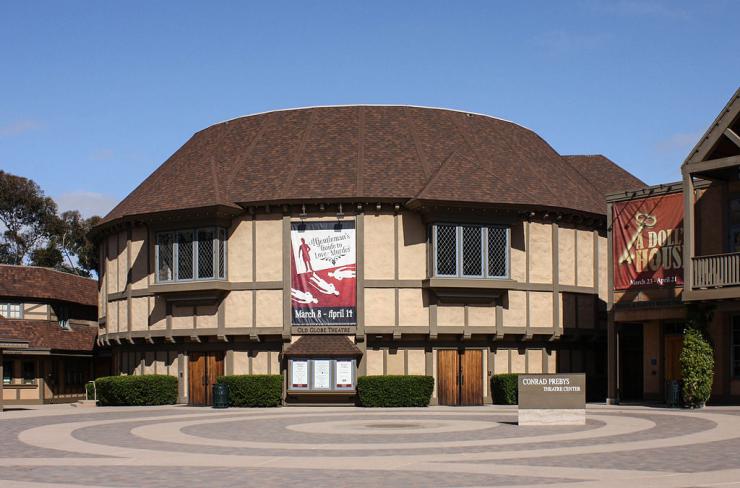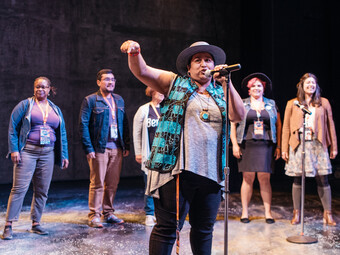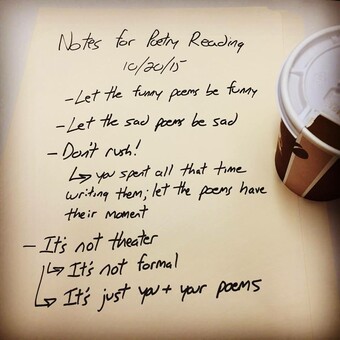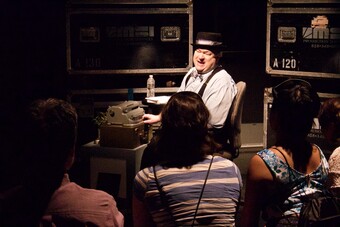Ad Lib Rescues and Spontaneous Saves
Every stage performance has the unexpected, unrehearsed, and unplanned wobbly rocks to step on as one crosses the stream of a live performance to the other side of the final curtain. It is in this shadowy phase where the performers have the terrifying opportunity to either stand frozen like the proverbial deer in the headlights or perceive the natural reaction or comment that would appear genuine to the audience. This latter solution has to be enacted within a split-second and must appear as though it had always been a part of the script. It is this secondary shadow-performance that becomes the gradually-opening door leading to the pure mysticism that often occurs on stage in a performance that is unlike any other version of the same play, performed over and over. This is where fast-thinkers excel and where the fortunate audience witnesses true acting; the unexpected deviation from the script and the casual acceptance of the brief alteration can electrify the whole cast, and the audience applauds, not even realizing they have witnessed true acting where the actors have been magically integrated into the fictional or interpretive personas of the characters invented or gleaned from life itself by the playwright. This is a transcendental and rare experience, but occurs often enough to become almost addictive to actors, some of whom may not have even noticed the powerful surge of extemporaneous improvisation that salvaged the scene as if it had been an invisible line coach, following along with a playbook. All who have seen or felt this leap of faith finally understand why they love acting.
Somehow, no matter how many times the scenes are rehearsed, there always seems to be something unexpected that occurs once the play gets underway and a live audience is watching every nuance as well as every glitch.
Talk to anyone who has performed in a play and they have an experience to share that was not in the script. Somehow, no matter how many times the scenes are rehearsed, there always seems to be something unexpected that occurs once the play gets underway and a live audience is watching every nuance as well as every glitch.
I certainly had a few such experiences in my career. During a performance of Bell, Book, and Candle, emoting the role of Aunt Queenie as if I had been portraying her most of my life, the young love interest of the ingénue was alone with me on stage and was supposed to hand me a book of matches with which I was to light a candle. During rehearsals, the rest of the cast and I had noticed the relationship between the two young people had become much more serious than a pretend performance, and so the young man was obviously distracted. He had come onstage snappy and confident, patting his vest pockets for the matches. They weren’t there; he had forgotten the prop and looked at me as if he were drowning. I caught on immediately and looked from side to side briefly, then nodded affirmatively, saying, “Oh, well then…why don’t you go back outside and check in the front seat of your car?” This was ad lib, of course. He looked at me as if I were the embodiment of a celestial angel or at the very least, the magic solution to his embarrassing problem. We saved that drowning rat in the nick of time, and even the director complimented us on the save later on..
It can be hard to know where to draw the line, however. I went too far in an earlier performance. The play was Boeing, Boeing! and I was playing Bertha, the housekeeper of the philandering airline pilot who struggles to keep three stewardesses from running into each other in his apartment. At one point, I was to step through the doorway at the back of the set, center stage, and stand still for a tense moment as I tried to remember which stewardess was where. I adlibbed, more or less spontaneously pulling a huge dill pickle out of my apron pocket and taking a large bite out of one end, rolling my eyes like Groucho Marx. I got a huge laugh and was smugly confident until I saw the director storming into my dressing room.
“What did you think you were doing, rewriting the play? You should’ve brought it up during rehearsals, not after the run has started! Idiot!” he snarled and stalked off, furious. I never changed another line after that, and learned my lesson about the difference between a “save” and a spontaneous addition.

Several years later, I witnessed another brilliant save by a fellow cast member in Orpheus Descending, a dramatic play by Tennessee Williams at the Old Globe in San Diego. The elderly man playing the husband was supposed to fire the fake pistol at the woman playing his wife, and she was supposed to fall down dead and await the ensuing alarmed populace. On this particular night, the fake gun did not fire! Several of us were waiting behind the scrim to make an entrance on stage after the gun was fired. We listened, and there was no gunshot to be heard. “Uh oh…” someone whispered. “Now what?”
The woman playing the wife thought fast and wheeled around and ran upstage, clamoring up the rickety staircase and out of sight. We made our group entrance and went on with our lines as if the escape up the stairs was part of the script. It was hard to keep a straight face, but we managed to get on with the show!








Comments
The article is just the start of the conversation—we want to know what you think about this subject, too! HowlRound is a space for knowledge-sharing, and we welcome spirited, thoughtful, and on-topic dialogue. Find our full comments policy here